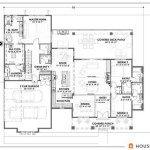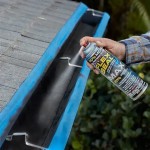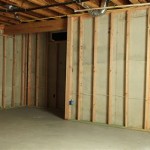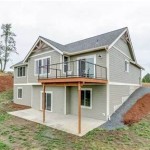R Rating for Basement Insulation: Essential Aspects to Consider
Insulating your basement is crucial for maintaining a comfortable living environment, reducing energy consumption, and mitigating moisture problems. When it comes to basement insulation, the R-value plays a significant role. The R-value measures the resistance of a material to heat flow, indicating how well it insulates. A higher R-value signifies better insulation.
For basements, the recommended R-value for insulation ranges from R-13 to R-30 or higher, depending on factors such as your climate zone, the type of insulation used, and the desired level of comfort and energy efficiency. Here are some key aspects to consider when determining the appropriate R-rating for your basement insulation:
1. Climate Zone
The climate zone where your home is located significantly impacts the R-value you need for basement insulation. Colder climates require higher R-values to minimize heat loss and maintain warmth inside the basement. Refer to local building codes or consult with insulation professionals to determine the recommended R-value for your specific climate zone.
2. Insulation Type
Different types of insulation materials have varying R-values per inch of thickness. Common insulation materials used for basements include fiberglass batts, cellulose loose-fill, spray foam, and rigid foam boards. Research and compare the R-values of different insulation types to find the most suitable option for your needs and budget.
3. Desired Comfort Level
The desired comfort level in your basement should also influence your choice of R-value. If you plan to use the basement as a living space, such as a family room or home office, you may want to opt for a higher R-value to ensure a comfortable temperature year-round. Conversely, if the basement will be used primarily for storage or occasional use, a lower R-value may suffice.
4. Energy Efficiency Goals
Insulating your basement can significantly reduce energy consumption and lower utility costs. A higher R-value will result in better insulation, leading to reduced heat loss in the winter and heat gain in the summer. Consider your energy efficiency goals when determining the R-rating to achieve optimal savings.
5. Moisture Control
Basements are prone to moisture problems, which can damage insulation and create an uncomfortable living environment. Choose insulation materials that are moisture-resistant or have moisture control properties to prevent mold, mildew, and other moisture-related issues.
6. Air Sealing
Air sealing is an important complement to insulation. Sealing cracks, gaps, and air leaks around pipes, windows, and doors helps prevent warm air from escaping in the winter and cool air from entering in the summer. Air sealing improves the effectiveness of your insulation and reduces energy loss.
7. Professional Installation
Proper installation is crucial to ensure the optimal performance of your basement insulation. Hire experienced insulation contractors who are familiar with the R-value requirements and installation techniques for the specific insulation material you choose. Improper installation can compromise the insulation's effectiveness and lead to future problems.
By considering these essential aspects, you can determine the appropriate R-rating for your basement insulation and achieve the desired levels of comfort, energy efficiency, and moisture control. Remember to consult with insulation professionals or refer to local building codes for expert advice and specific recommendations based on your location and requirements.

All About Insulation R Values The Home

What R Value Do I Need Johns Manville

Recommended Insulation Levels For Optimum R Value

Insulation Levels For Cold Hot And Moderate Climates

Etw Foundation Code Minimum R 10 Continuous Insulation Buildingscience Com

All About Insulation R Values The Home

How Much Insulation Does Your Home Need Guide

How Much Insulation Does My Home Need R Value

New York Recommended Home Insulation R Values Zone 4

What Is R Value Insulation Tampa Florida Fl








